Must-Read Books on Death & Dying: A Guide to Healing Through Literature
Filed under:

Introduction
Reading about death, grief, and dying can be a profound, healing experience. Not only does it allow us to process difficult emotions, but it also creates a space for reflection and comfort. These books on death & dying can feel like quiet companions on our grief journey, showing us that we’re not alone in our experiences of loss. Through the voices of authors who have walked similar paths, we gain not just solace, but the reassurance that grief is a shared human experience, not something we must face in isolation. There’s real power in seeing our feelings mirrored in someone else’s story.
Moreover, these books offer more than just emotional validation—they provide practical insights on navigating grief. From learning how to cope day by day to understanding the complexities of end-of-life care, the wisdom shared can be invaluable. For those mourning the loss of a loved one or even those supporting someone in grief, literature can offer both comfort and guidance. It serves as a reminder that through empathy, reflection, and emotional processing, we can find our way forward, slowly turning the pain of loss into a space for healing and growth.
Reading in a Quiet, Reflective Space
Choosing to read in a quiet, reflective space allows you to fully embrace the therapeutic potential of grief literature. It’s a chance to step away from life’s distractions and immerse yourself in both the book’s narrative and your emotions. In the stillness, the words on the page take on new depth, allowing you to process your own loss in a calm, uninterrupted environment. Whether it’s a cozy corner of your home or a peaceful spot outdoors, this dedicated time for reflection can be profoundly healing. It’s a gentle reminder that sometimes, in the quiet, we can find the strength to face our grief, one page at a time.

Journaling While Reading Books on Death & Dying
Journaling while reading grief-related literature is like having a conversation with yourself. By noting down thoughts and feelings as they arise, you can engage with the material on a deeper level. This practice helps you make sense of both the book’s content and your personal grief. Imagine reflecting on a passage that resonates with your own experiences, and then exploring why it touches you so deeply. The act of writing helps to untangle emotions that might feel overwhelming, offering clarity and space to heal. Plus, keeping a journal alongside a book turns reading into a personal ritual, a moment where you can honour both your thoughts and feelings as you move through grief.
Scientific Research and Studies on Reading and Healing
The therapeutic nature of reading—through empathy, reflection, and the processing of emotions—can foster healing and personal growth. Overall, the act of reading about death and grief can be a powerful tool for both understanding and transforming the experience of loss into a pathway for healing and deeper connection with oneself and others.
Bibliotherapy, the use of reading for emotional and psychological healing, has been supported by various studies over the years. For example, a 2013 study published in the journal Psychiatric Services found that reading self-help books, particularly those addressing personal issues like anxiety and depression, can significantly reduce psychological distress.
Another study published in The Journal of Research in Personality (2013) showed that reading fiction, particularly stories with complex emotional narratives, improves empathy by helping readers understand and connect with the emotions of others.
Additionally, research published in Science (2006) indicated that reading literary fiction enhances emotional intelligence and social perception, both of which are crucial for processing grief and loss. These studies suggest that engaging with literature not only fosters emotional growth but also provides an important tool for those coping with the complex emotions that accompany bereavement.

Book Recommendations
The list of books below can provide practical wisdom and guidance for managing grief and facing mortality. Many of these works offer new perspectives on how to cope with loss, how to find meaning amidst suffering, and how to navigate the complexities of end-of-life care. For those dealing with their own grief or supporting others through difficult times, these books can serve as valuable resources, offering strategies for emotional resilience and self-care.
Being Mortal: Medicine and What Matters in the End by Atul Gawande (2014)
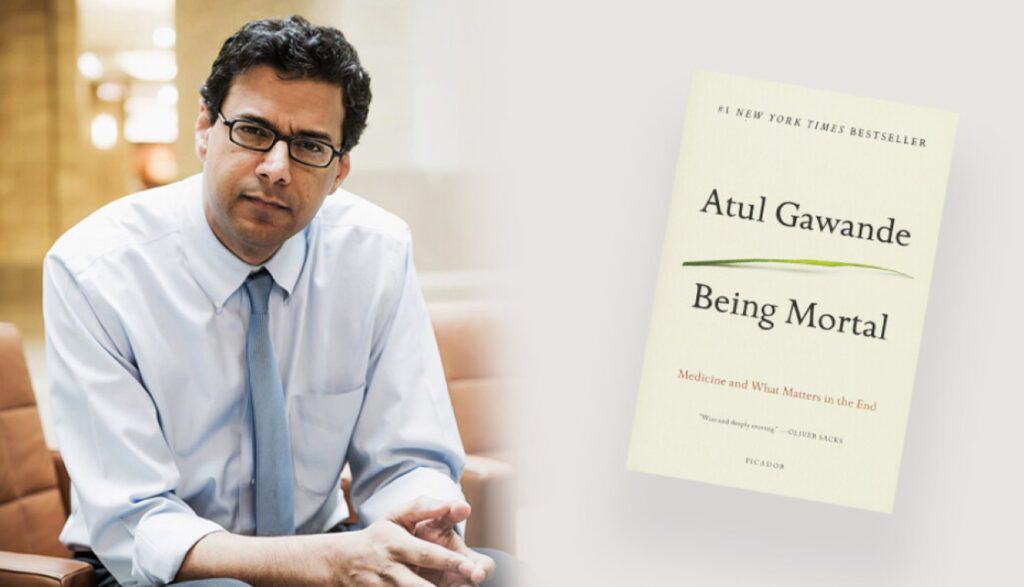
In Being Mortal, surgeon Atul Gawande opens up a conversation that many of us shy away from: the reality of aging and death. He thoughtfully explores how modern medicine often prioritises prolonging life over enhancing its quality. By weaving together personal anecdotes and research, Gawande highlights the need for compassion and dignity in end-of-life care. This book encourages us to have honest conversations about our desires and values when facing mortality. It’s a gentle nudge to rethink our approach to aging and dying, reminding us that living well is just as important as living longer.
When Breath Becomes Air by Paul Kalanithi (2016)
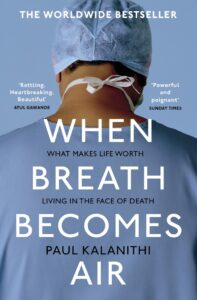
In When Breath Becomes Air, Paul Kalanithi, a neurosurgeon diagnosed with terminal lung cancer at just 36, takes us on an intimate journey from doctor to patient. His memoir is a heartfelt exploration of what it means to grapple with mortality and seek meaning in life’s fleeting moments. Divided into two parts, Kalanithi reflects on his earlier life and career before transitioning to the deeply personal experiences that followed his diagnosis. He shares profound insights about suffering, love, and the courage to confront death head-on, making this book a beautiful testament to resilience and the quest for purpose.
On Death and Dying by Elisabeth Kübler-Ross (1969)
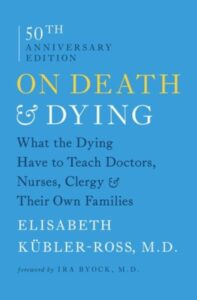
Elisabeth Kübler-Ross’s On Death and Dying is a groundbreaking work that introduced us to the five stages of grief—denial, anger, bargaining, depression, and acceptance. Drawing from her extensive work with terminally ill patients, she offers compassionate insights into how we cope with the inevitability of death and the loss of loved ones. Blending clinical case studies with personal reflections, Kübler-Ross reshaped the conversation around dying, encouraging us to embrace a more humane and empathetic approach to end-of-life care. This book remains a cornerstone in understanding grief, reminding us that our feelings are valid and shared.
The Five Invitations: Discovering What Death Can Teach Us About Living Fully by Frank Ostaseski (2017)
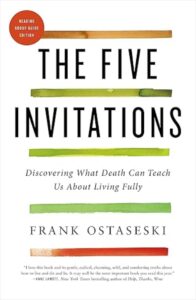
The Five Invitations by Frank Ostaseski invites readers to embrace death as a catalyst for living fully. Drawing from his profound experiences with the Zen Hospice Project, Ostaseski shares five guiding principles that encourage us to approach life—and death—with open hearts. Each invitation invites reflection: accepting death as a natural part of life, welcoming all emotions, being fully present, finding stillness amid chaos, and cultivating a sense of wonder. With poignant stories from his hospice work, this book offers practical wisdom on facing mortality with courage and compassion, making it a beautiful guide for anyone seeking to deepen their understanding of life and death.
Smoke Gets in Your Eyes: And Other Lessons from the Crematory by Caitlin Doughty (2014)
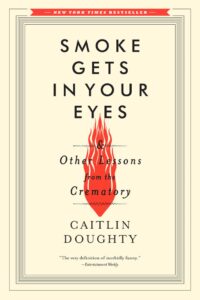
In Smoke Gets in Your Eyes, Caitlin Doughty takes us behind the scenes of the mostly American death care industry with a candid and often humorous perspective. Part memoir and part social critique, Doughty recounts her experiences as a mortician, challenging conventional practices while advocating for more honest conversations about death. Her engaging writing style demystifies the processes surrounding death and encourages readers to confront their fears and anxieties. With wit and wisdom, this book is a refreshing and thought-provoking read that empowers us to take control of our end-of-life choices and engage in meaningful discussions about mortality.
The Bright Hour: A Memoir of Living and Dying by Nina Riggs (2017)
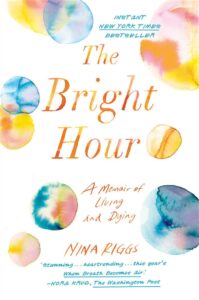
In The Bright Hour, Nina Riggs shares her journey with terminal breast cancer with a voice that is both lyrical and candid. Diagnosed at 37, Riggs reflects on the challenges of living with a terminal illness while savouring the beauty in everyday moments. Her writing is infused with humour, love, and an unwavering spirit as she navigates family, friendship, and the small joys that sustain her. Drawing inspiration from her distant relative Ralph Waldo Emerson, Riggs crafts a powerful meditation on mortality and resilience. This memoir serves as a poignant reminder to cherish life, making it a deeply moving read for anyone confronting their own mortality or the realities of loss.
Tuesdays with Morrie by Mitch Albom (1997)
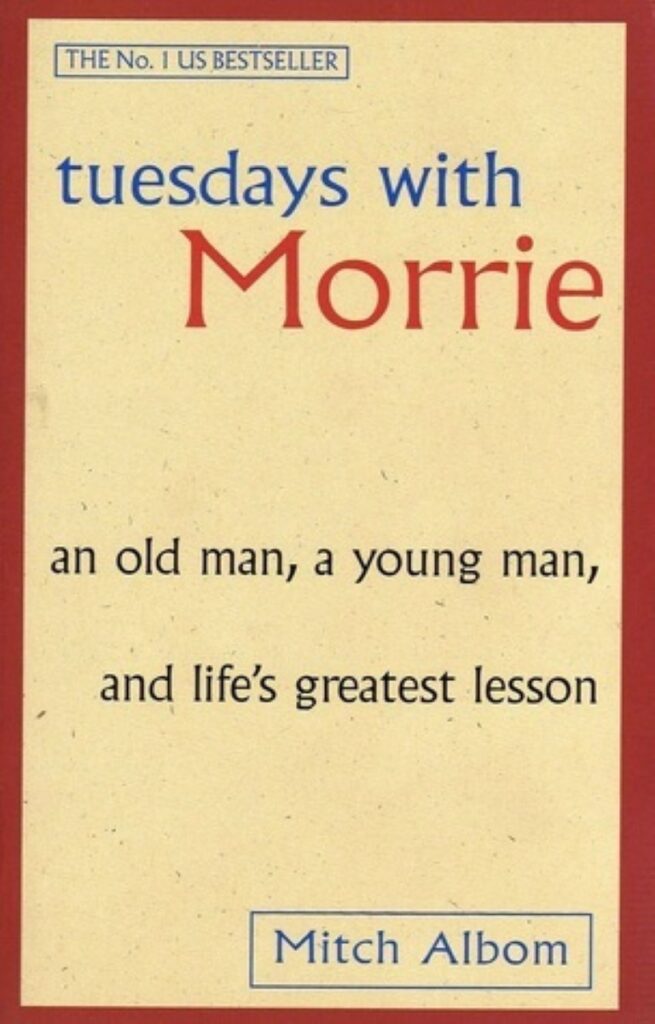
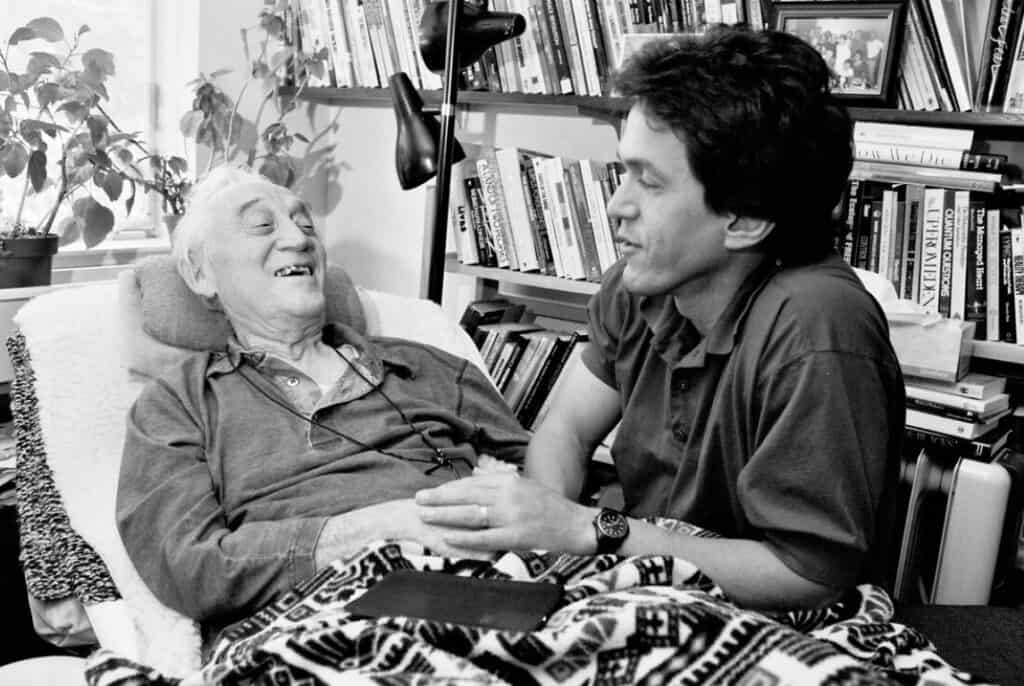
Mitch Albom’s Tuesdays with Morrie is a heartwarming memoir that captures the essence of life’s most important lessons. Through his weekly visits with his former college professor Morrie Schwartz, who is battling ALS, Albom learns invaluable insights about love, work, and the inevitability of death. Each Tuesday meeting unfolds profound wisdom wrapped in warmth and humility, prompting both Albom and readers to reconsider what truly matters in life. This beautifully written narrative is not just a memoir; it’s an invitation to reflect on our own lives and the connections we cherish, making it a comforting companion in times of grief.
The Year of Magical Thinking by Joan Didion (2005)
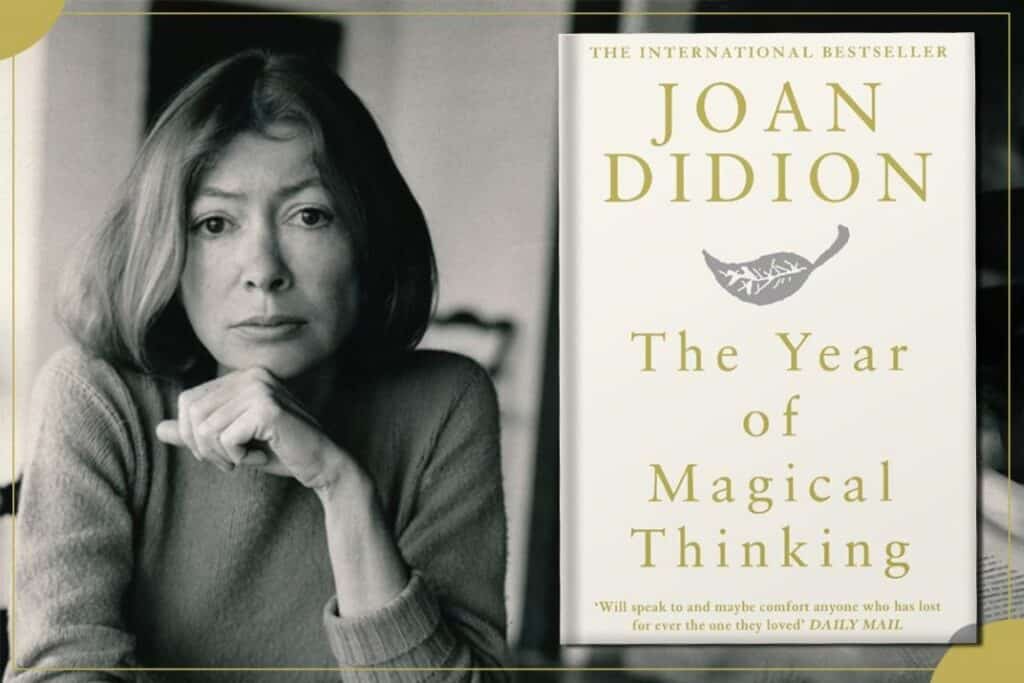
In The Year of Magical Thinking, Joan Didion provides an intimate glimpse into her life after the sudden loss of her husband, John Gregory Dunne. As she grapples with shock and grief, Didion’s reflections reveal her struggle with “magical thinking”—the belief that she can somehow reverse the loss. Her eloquent writing captures the complexities of memory and the fragility of life, weaving together her profound sorrow with the challenges of caring for her ailing daughter, Quintana. This memoir is a powerful meditation on love and loss, offering readers a raw and honest portrayal of the grieving process.
A Grief Observed by C.S. Lewis (1961)
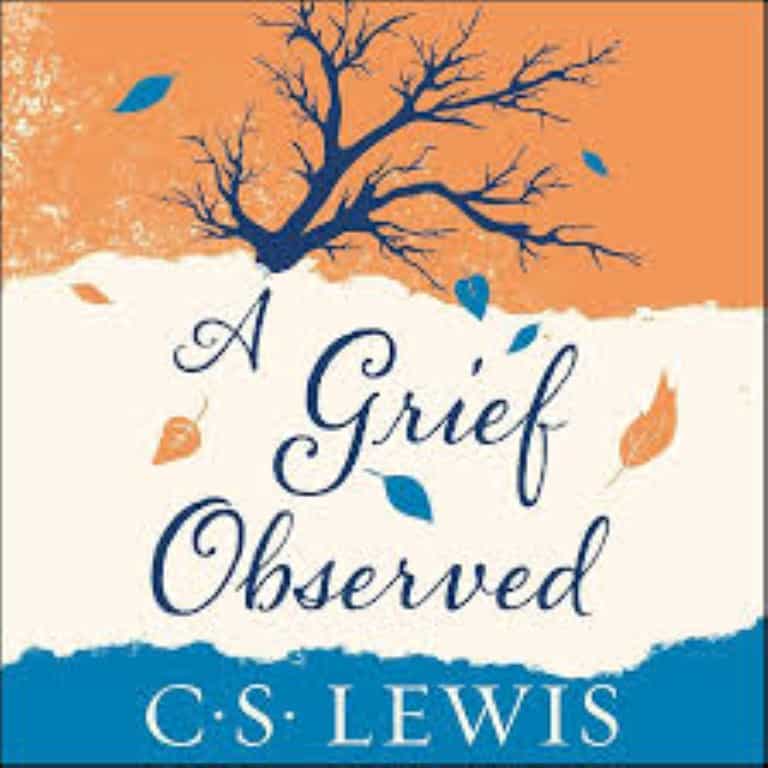
C.S. Lewis’s A Grief Observed is a candid exploration of his profound sorrow following the death of his wife, Joy Davidman. Originally published under a pseudonym, this collection of reflections and journal entries captures the depth of his grief—filled with sorrow, anger, and confusion. Lewis’s writing resonates with readers as he grapples with faith, love, and the search for meaning in the wake of loss. This poignant work remains a deeply personal and universal testament to the grieving process, offering solace and understanding to those navigating their own journeys through grief.
The Long Goodbye by Meghan O’Rourke (2011)
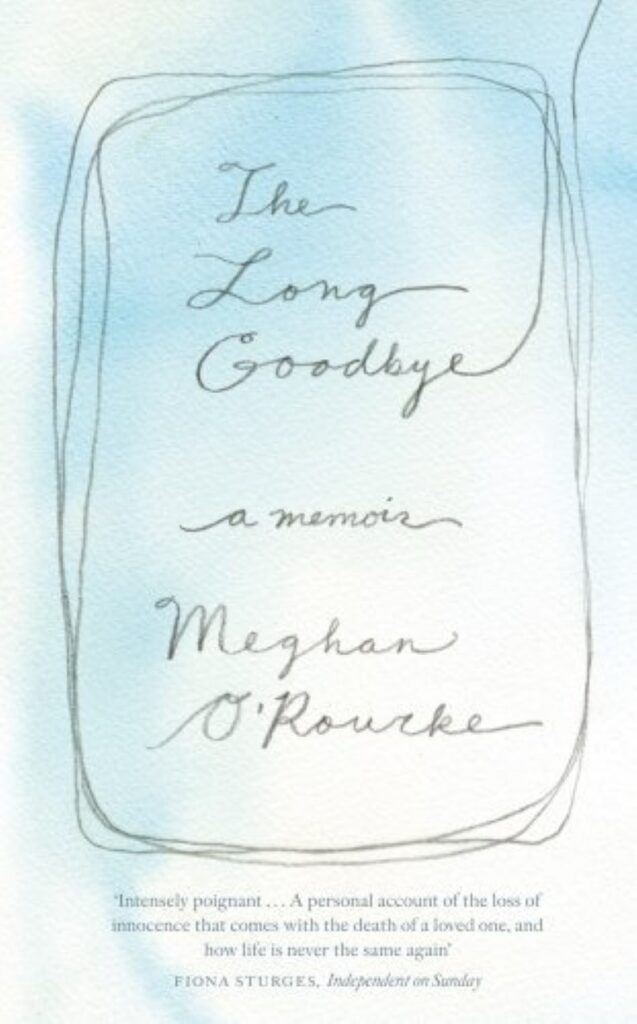
In The Long Goodbye, Meghan O’Rourke shares her heartfelt journey through grief after her mother’s death: she was thirty-two when her mother died of cancer on Christmas Day 2008. With a blend of personal narrative and intellectual exploration, O’Rourke examines the nature of mourning and the emotional toll it takes. Her writing captures the rawness of grief while also engaging with literary and philosophical texts, enriching her understanding of loss. This memoir is a compassionate exploration of how grief shapes identity and the ongoing process of learning to live with loss, offering comfort and resonance for anyone experiencing profound grief.
The Art of Losing: Poems of Grief and Healing edited by Kevin Young (2010)
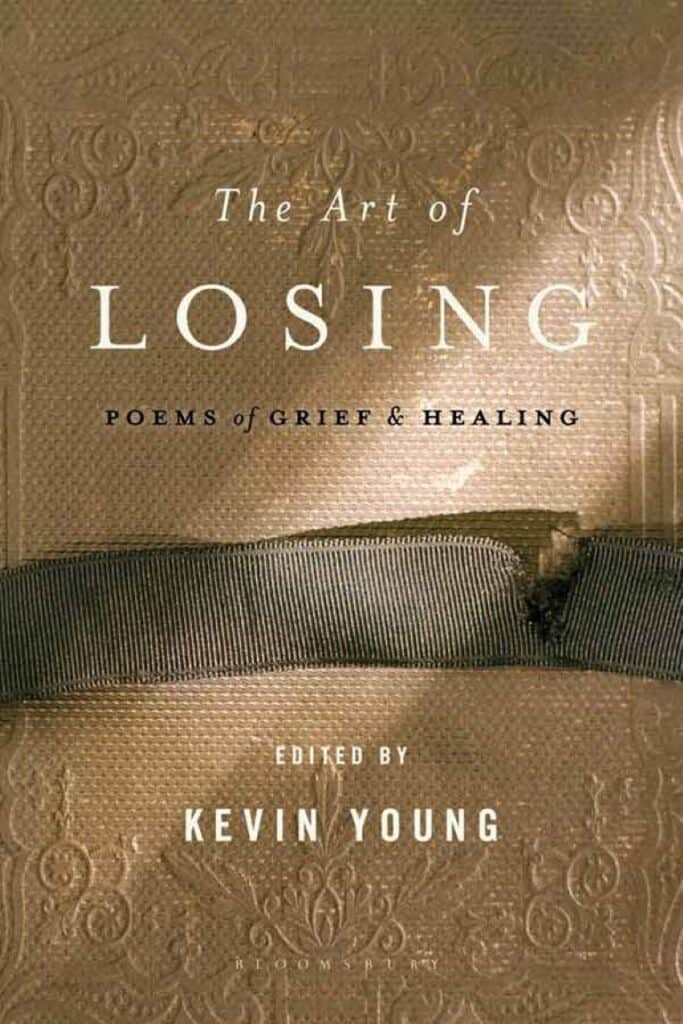

The Art of Losing is an anthology curated by Kevin Young, bringing together a diverse collection of poems that explore themes of grief, loss, and healing. Featuring works from poets like Emily Dickinson, W.H. Auden, and contemporary voices, this collection serves as a literary companion through the various facets of mourning. Young’s thoughtful selection captures the universal experience of grief while celebrating the unique ways individuals express their sorrow. Divided into thematic sections, this anthology provides a comforting resource for those in mourning, illustrating the power of poetry to articulate what often feels inexpressible.
Wave by Sonali Deraniyagala (2013)
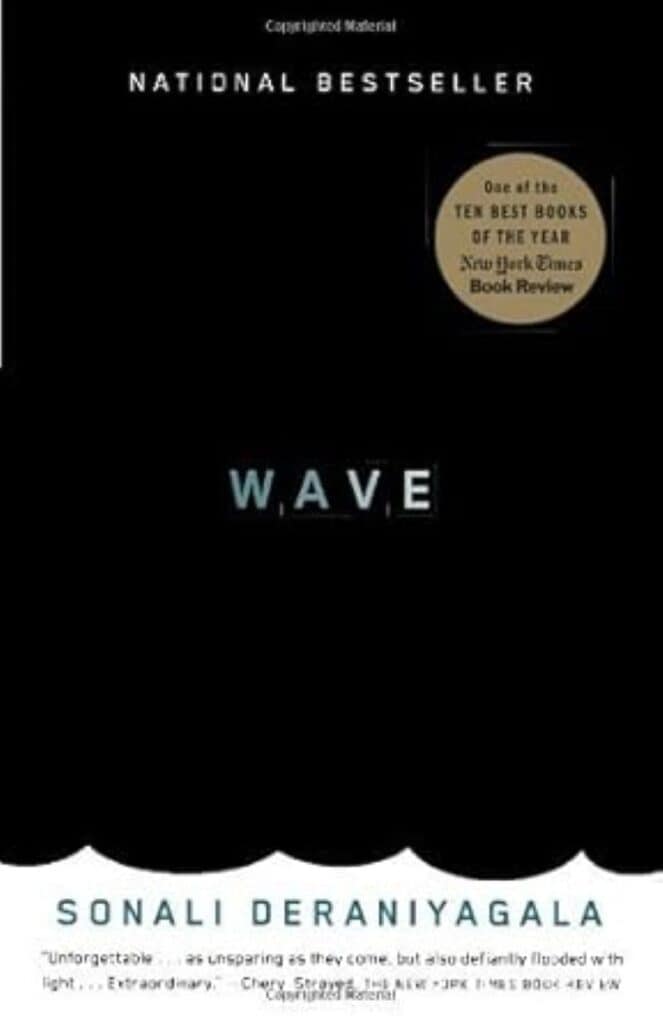

Wave is a harrowing memoir by Sonali Deraniyagala, recounting the devastating loss of her entire family in the 2004 Indian Ocean tsunami. Her raw and powerful narrative lays bare the intensity of her grief as she navigates the aftermath of unimaginable loss. Deraniyagala’s writing is both deeply personal and universally resonant, exploring themes of memory, guilt, and the struggle to find acceptance. This memoir is a testament to the resilience of the human spirit, offering readers a profound exploration of grief and recovery that lingers long after the last page.
H is for Hawk by Helen Macdonald (2014)
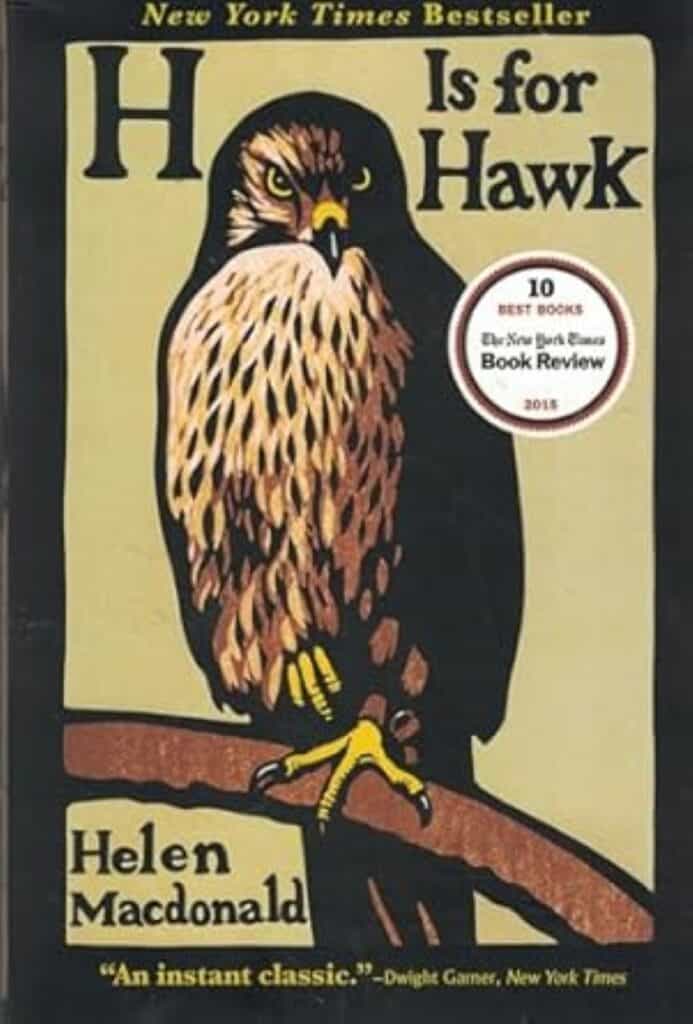
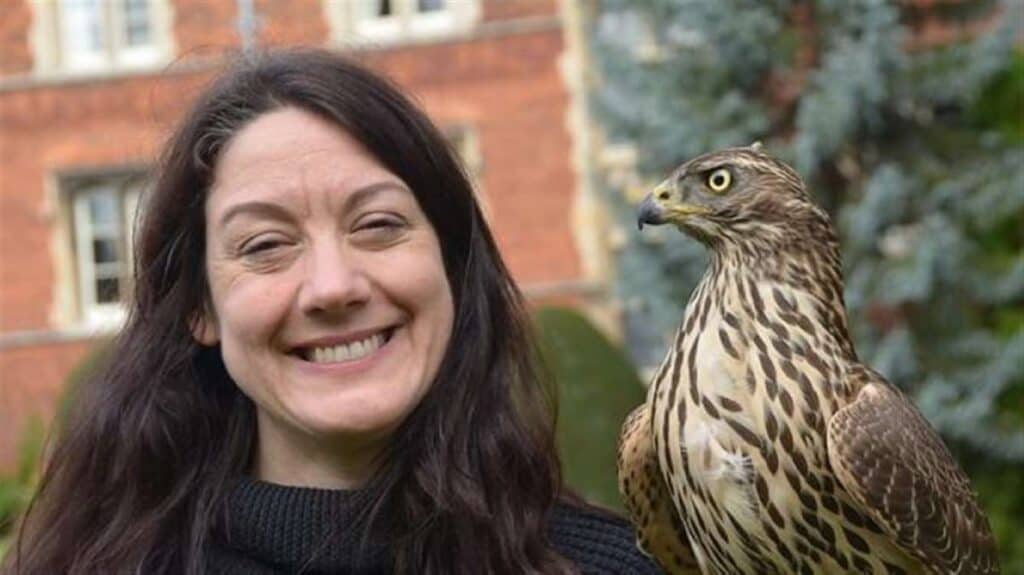
In H is for Hawk, Helen Macdonald intertwines her journey through grief following her father’s sudden death with the art of falconry. Struggling to cope with her overwhelming sorrow, she embarks on the challenging task of training a goshawk, which serves as a powerful metaphor for grappling with her inner turmoil. Macdonald’s lyrical prose reflects on identity, nature, and the deep connection between humans and animals. This memoir not only serves as a meditation on grief but also explores the wildness within both the natural world and the human soul, making it a beautifully crafted read that resonates deeply.
Strangers by Taichi Yamada (Fiction) 1987
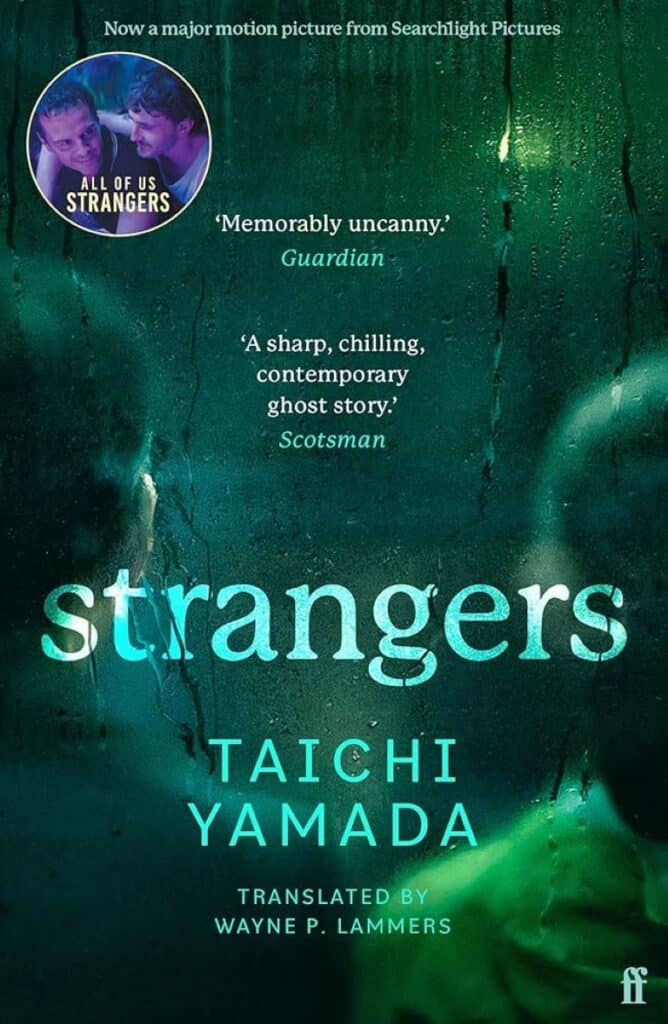
Strangers tells the haunting story of Harada, a middle-aged television scriptwriter grappling with the recent loss of his parents and the dissolution of his marriage. After moving into a desolate Tokyo apartment, he begins to encounter what seem to be the ghosts of his deceased parents. These supernatural experiences blur the lines between reality and the past, prompting Harada to confront his unresolved grief and the emotional scars he carries. Yamada’s beautifully written novel captures the complexities of mourning and the way our past continues to shape our present, making it a thought-provoking addition to any reading list on these themes.
The Archaeology of Loss by Sarah Tarlow (2023)
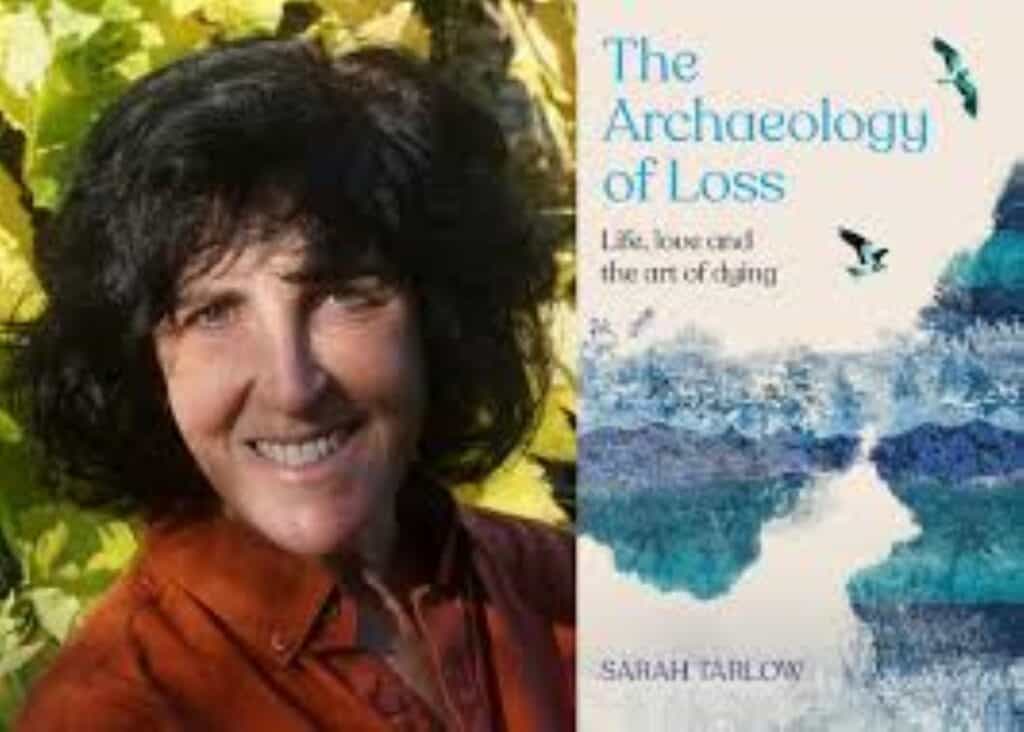
In The Archaeology of Loss, Sarah Tarlow intertwines her personal journey through grief with her professional expertise as an archaeologist. Following the terminal illness of her partner, Mark, Tarlow reflects on how artifacts and burial practices from the past can offer insights into our understanding of death. This dual narrative creates a rich tapestry of emotional and historical exploration, delving into how humans have coped with loss throughout time. Tarlow’s writing is both intellectually engaging and deeply moving, providing readers with a unique perspective on grief that is informed by a lifetime of studying death while remaining profoundly personal.
The Last Act of Love: The Story of My Brother and His Sister by Cathy Rentzenbrink (2015)
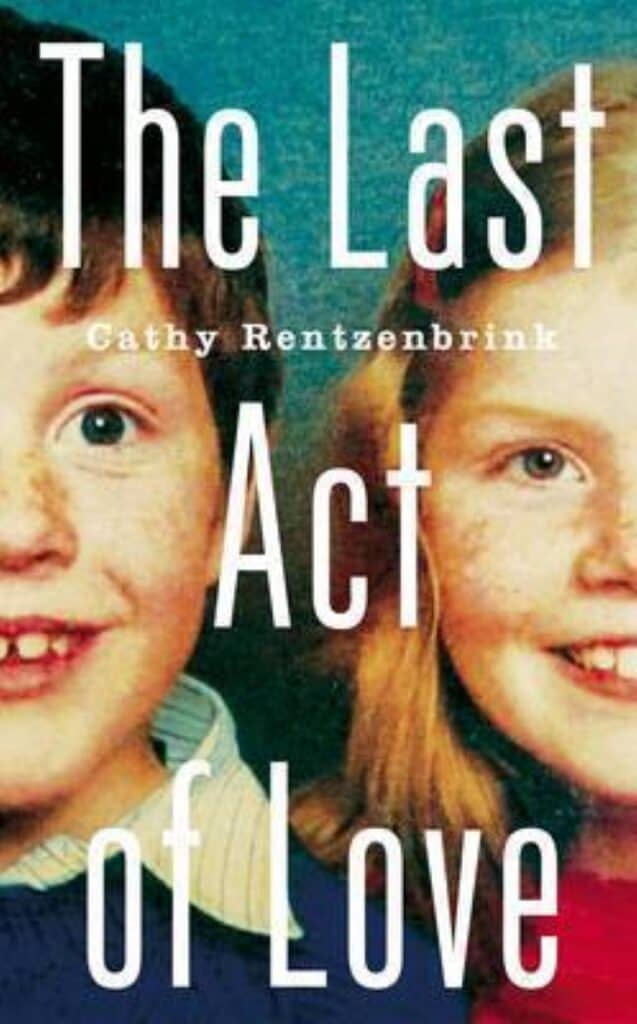

Cathy Rentzenbrink’s The Last Act of Love is a moving memoir that captures the profound bond between siblings and the agonising journey of saying goodbye. Rentzenbrink recounts the story of her brother, Matty, who suffers a catastrophic brain injury at 16, leaving the family to navigate the emotional and legal challenges of his care over eight long years. Through her raw and honest writing, Cathy explores the complexities of love, guilt, and acceptance as she faces the difficult decision to let him go. This memoir is a poignant reminder of the enduring power of love and the heart-wrenching journey of grief, inviting readers to reflect on their own experiences with loss and the importance of dignity in the face of death.
Books on Death & Dying – Your Recommendations
I’d love to hear from you! Please leave a comment with any other books related to dying, death, and grief that you’d recommend. Whether it’s a memoir that deeply resonated with you, a self-help book that provided much-needed guidance, or a novel that beautifully explored loss, your suggestions could offer valuable support to others in their own grief journey.
Some great recommendations might include works you’ve read that focus on specific types of loss (e.g., the loss of a child or partner), spiritual perspectives on death, or books that discuss the process of healing and moving forward after loss. Every story of grief is different, and your contributions could help create a richer, more diverse reading list for those seeking solace and understanding.

Book Clubs Focused on Grief and Healing
If you’re already part of a book club, consider suggesting a book that explores themes of grief and healing to foster deeper discussion and emotional support within the group. Reading and reflecting together can provide mutual insights and encouragement during difficult times. Alternatively, you could start or join a dedicated book club focused on these themes to share experiences, offer empathy, and find solace in literature. Here are some suggestions for exploring grief and healing through book clubs across Australia:
- Local Library Book Clubs
Many public libraries in Australia offer book clubs that often touch on themes of loss, grief, and healing. Librarians can guide you to books and resources for creating or joining a grief-focused book club. These clubs offer a supportive environment for individuals to connect and reflect on shared experiences. Check with your local library for available options. - Online Book Clubs
Online book clubs offer flexibility, allowing you to join from home while discussing grief-themed books. These clubs provide a space for participants to explore grief and healing on a more personal level, often with members who have gone through similar experiences. Goodreads, for example, has groups dedicated to books about grief, and forums like Reddit host active communities focused on these themes.
Example: Join Goodreads groups or Reddit’s r/GriefSupport community for discussions on relevant books. - Grief and Bereavement Support Organisations
Some grief support organisations offer book clubs as part of their services, providing a structured environment for discussing grief-related literature with professionals and peers.
Example: Reach out to organisations such as The Compassionate Friends Australia or GriefLine to find book clubs centred on grief and bereavement. - University and Community Groups
Universities and community centres often host book clubs or discussion groups that focus on grief and personal growth. These groups may be open to the public and provide a diverse space for engaging with others on these important themes.
Example: Check with the University of Melbourne or the University of Sydney for information on grief-related reading groups. - Special Interest Groups
Specialised book clubs or forums focus on specific types of grief, such as losing a child or partner. These groups offer targeted discussions and a more intimate environment for sharing grief experiences.
Example: Look for groups like Sands Australia or Palliative Care Australia, which may host book clubs for specific types of loss. - Social Media and Forums
Social media platforms provide an easy way to find book clubs that focus on grief and healing. Facebook groups and online forums offer discussions and book recommendations in a community of shared experiences.
Example: Join Facebook’s Grief Support Book Club or Reddit’s r/GriefSupport for virtual discussions on books that deal with grief.
Book Club Discussion Questions for Books on Death & Dying
If you are interested in thinking deeply about the themes of any books you read and how they relate to your own experiences, you might find these general discussion questions useful.
- How does the author’s personal experience with grief or death influence the narrative or message of the book?
- What emotions or thoughts did the book evoke in you? How did these emotions impact your understanding of grief or loss?
- In what ways does the book address the theme of acceptance or reconciliation with death? How does this compare to your own views or experiences?
- What coping strategies or insights from the book resonate with you the most? How might you apply these strategies to your own experiences or to support others?
- How does the portrayal of death and grief in the book differ from or align with societal or cultural views you are familiar with?
- Did the book challenge or change your views on death, dying, or the grieving process? If so, how?
- How does the book use literary devices (such as symbolism, imagery, or narrative structure) to convey themes related to grief and loss?
- What role does the concept of legacy or memory play in the book? How does this influence the characters’ journeys through grief?
- Are there any specific passages or quotes from the book that stood out to you? What made them impactful or memorable?
- How do the characters’ responses to death and loss in the book compare to your own experiences or those of people you know?
Additional Reading Lists– More books on Death & Dying
Here are some additional reading lists you might find helpful if you’re seeking books that explore grief, loss, and healing. These lists include a wide range of genres and styles, from memoirs and personal essays to fiction and self-help books, all designed to support readers through their grief journey.
Additional Resources
Article: How Does Bibliotherapy work? How Stories Can Provide Real Comfort

Movie Recommendations
I know that grief can be overwhelming, and sometimes even the simplest tasks, like reading, can feel too much. If you’re feeling this way, please don’t hesitate to take a break. I’ve got a wonderful list of movie recommendations lined up that might provide some comfort and distraction.
The Role of Funeral Celebrants, Funeral Directors + Death Doulas in the Grieving Process
As you explore these powerful narratives about death and grief, it’s essential to recognise the role of funeral celebrants, funeral directors and death douals in supporting individuals and families during their most challenging times. These death professional are not just service providers; they are compassionate guides who help navigate the complexities of loss and the grieving process. They assist families in honouring their loved ones with meaningful and personalised memorial services, providing a space for reflection and connection.
Reading about grief can empower you with insights and understanding, making it easier to communicate your feelings and desires to those around you, including your death doula, funeral celebrant or funeral director. By discussing the themes and emotions that resonate with you in literature, you can better articulate your wishes for a funeral or memorial service that reflects the unique life of the person you’ve lost.
This partnership can create a healing experience that honours your person’s memory while providing you with a sense of peace and closure.
Whether you’re looking for a traditional funeral service or something more unconventional, as a funeral director, funeral celebrant and death doula. I can help tailor the experience to fit your needs, ensuring that you have the support and understanding necessary to navigate this journey of healing.
| |||||||||||||||||||||||